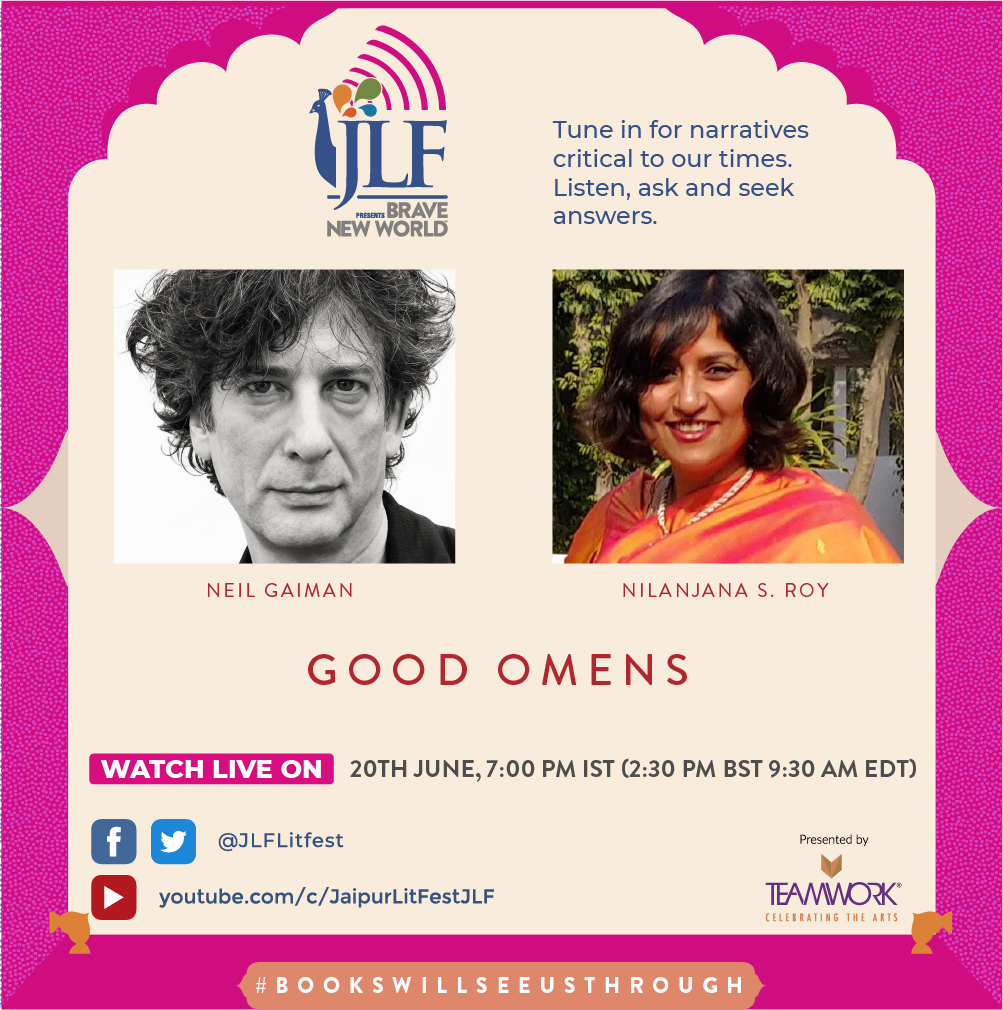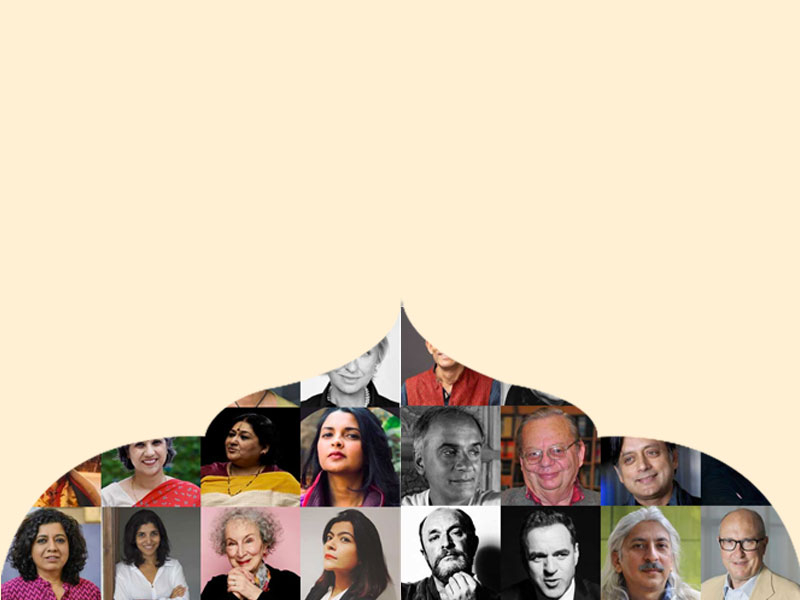Tune in for narratives critical to our times. Listen, ask and seek answers.
Watch Now
Fantasy and the Righteous Rage - A Conversation with Neil Gaiman
Listening to the crystalline prose of ‘The Graveyard Book’ in the voice of its author Neil Gaiman helped me and my flatmate power through a few days of the lockdown - our own homemade version of the ‘Decameron Tales’ - and so I was only too delighted to see Neil Gaiman at JLF Brave New World this weekend. The celebrated author appeared at a much-anticipated session in conversation with Indian journalist, literary critic, and author Nilanjana S. Roy. Roy reminded Gaiman of the fandom that his books have enjoyed in India, to which he said, “India feels increasingly like El Dorado- this mythical place that I want to get to, but haven’t managed to yet. Every time, India is only one step away.â€
Roy quizzed him on what he had been working on recently and on his wish to get back to the novel. Gaiman admitted to being unsure of which period to anchor the novel in. “Am I going to set it in 2019, or should I attempt to make sense of what’s happening right now and write a novel and let it cope?†His book ‘Neverwhere’, he said, was a way of talking about the displaced and the dispossessed- people who were forced out of their places and had to live in the margins. Working with Syrian refugees closely, he had been touched by an understanding of how normal their lives were before they became refugees. “They were us- they owned corner shops, were farmers, sold insurance, worked in car sales. That made me realise how fragile civilisation is, and how much we take it for granted.†Gaiman spoke poignantly, retaining his soothing voice of a master storyteller, even as he talked about how all it took to destroy a village was to drive a tank through its midst, down the main street. “All the water pipes get crushed and now there’s no water, and so people are going to have to go to the swamp. It’s all so fragile.â€
Roy and Gaiman then spoke about the literary genre of fantasy and the power of the imagination, its potential to pull us through difficult times and shatter our deeply entrenched beliefs. “What can fantasy do to bridge the empathy gap?†asked Roy, evoking British fantasy novelist Terry Pratchett. Pratchett wrote with an anger, she said, not a despairing anger but one that was fuelled by a thirst for change. Gaiman, as a fantasy novelist, is known to have been preoccupied with the question of who has freedom and who has not and agreed emphatically with Pratchett’s righteous indignation for the inequalities in our societies. “To get to a better world, we have to imagine a better world,†he said. “The governments aren’t going to fix it- we, as the citizens of the world, are going to have to demand better. We have to educate ourselves on the kind of world we want to be in and find a way to get there.â€
Gaiman also talked about kindness and insisted on its importance, even though anger and outrage can be stirred up far more easily. He reminded his audience that while negative emotions are easy to conjure up, kindness, empathy and forgiveness can be hard to find, and those are the ones we have to find in ourselves if “we are to move on as human beingsâ€. It didn’t mean that we can’t be righteously outraged, he said, “but kindness and empathy will have to be toolsâ€. Otherwise we’re going to live in an environment of anger, trying to find “a target for our 15 minutes of hateâ€.
Roy then asked Gaiman about his advice for writers. Those of us who use Facebook have surely stopped while scrolling down our feeds to play the teaser of Neil Gaiman’s ‘Masterclass’ whereby he reassures his learners that writing a novel, even for seasoned writers, is like “driving through the mist with a headlight outâ€. Gaiman is not only a gifted writer but a wonderful teacher of the writing practice and has generously laid down his writing rules in his slow, measured voice on various platforms. Roy asked him if he would change any of his rules for writers working during a pandemic, to which he said, “Be kind to yourself and be forgiving of yourself.†We are all in a constant state of anxiety, he said, in a prolonged fight or flight response, which makes it difficult to “reach the part of the mind which allows us to createâ€. The session ended with some more advice for writers. “Every writer will always need the active courage to show his first draft to someone- so pick the people who you will send your first draft to with care.â€
Watch the full session here: https://www.youtube.com/watch?v=HtTDvzyr3m4





Leave a comment